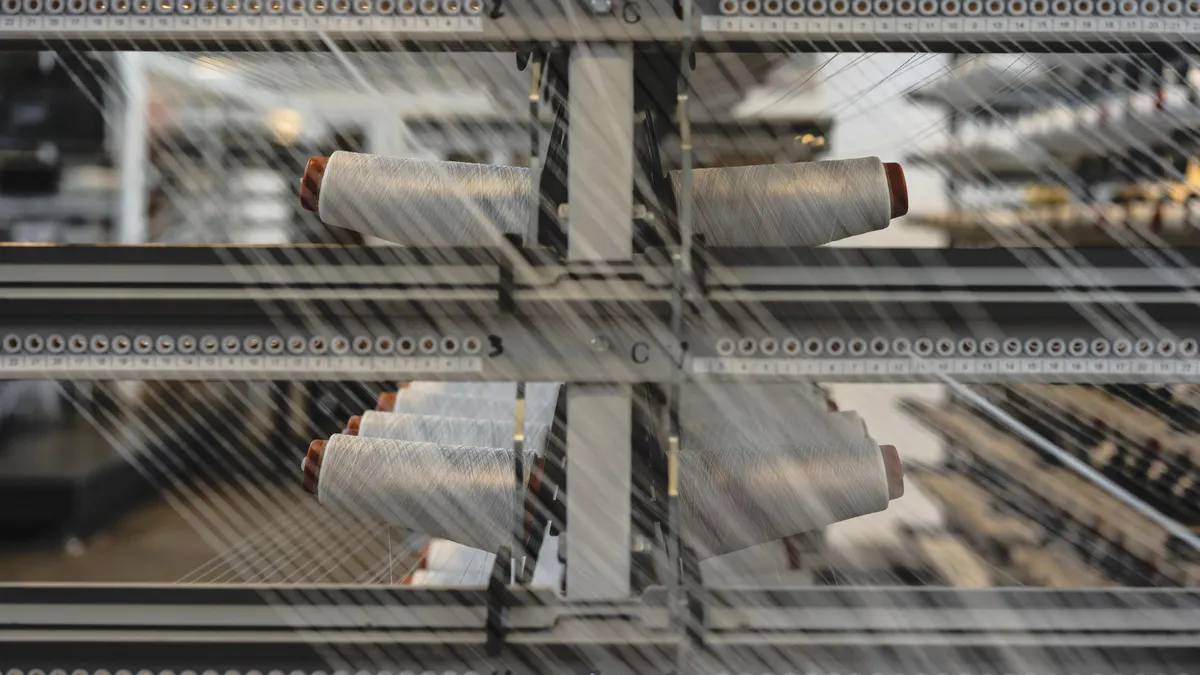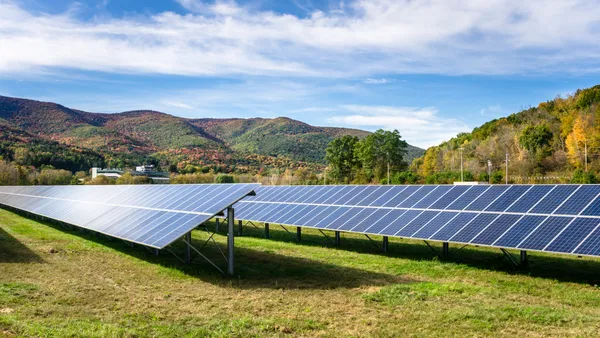Dive Brief:
- Weaving technology company Unspun announced Monday it has secured $32 million in a Series B funding round. Unspun’s mission, per its website, is to reduce global carbon emissions emitted by humans by 1% through enhancing the apparel manufacturing process.
- The funding, led by technology venture capital firm DCVC, will be used to help scale production of Unspun’s 3D weaving machinery called Vega, according to a press release. The technology was designed “to help brands realize a low-inventory, nearshore and automated supply-chain for woven products,” per the release.
- The new funding will be used to help Unspun scale its technology and will allow the company to localize apparel manufacturing across North America and Europe, said CEO Walden Lam in the release.
Dive Insight:
Unspun’s Vega machine can weave a pair of pants in about 10 minutes directly from yarn, according to a news release previously sent to ESG Dive’s sister publication Fashion Dive. The company said in its latest release that this process facilitates practically zero-waste, on-demand manufacturing and low-inventory production.
3D weaving machines also produce cleaner output by slashing emissions by 53%, reducing energy demand by 49% and decreasing blue water consumption by 39%, according to the company.
Last year, California-based Unspun received $14 million a Series A funding round, which it used to open a microfactory designed to demonstrate its woven-on-demand production capabilities and serve as its headquarters.
“Because 3D weaving drastically shortens supply chains and lead times, brands and manufacturers can plug these machines into existing supply chains for localized and automated production,” the company said. “This opportunity allows traditional cut-make-trim facilities to vertically integrate operations.”
Unspun added in the release that the process also offered 53% emissions reduction, 49% reduced energy demand and 39% reduced blue water consumption over traditional processes.
“Overproduction has long been a taboo in fashion,” Lam said in the release. “It is now recognized by top-tier climate-funds as a key issue to urgently solve for the industry.”
Walmart has already signed a multi-year agreement with the company, and Unspun said it has similar deals with “multiple top retailers” to use Vega machines for local production in North America and Europe.
Current and proposed legislative directives limiting textile waste may force fashion brands to look more closely at inventory production and supply chain transparency. Technology such as Unspun’s weaving machines and Debrand’s new AI-assisted textile recycling facility in Columbus, Ohio, are part of a larger effort to help the industry solve some of its overproduction problems.
Woven products represent 57% of the total apparel market, according to Unspun’s release.
“[Unspun] offers a tremendous economic and logistical unlock for the fashion industry by eliminating costly overproduction and radically shortening the supply chain,” Milo Werner, general partner at DCVC, said in the release. “We think it's good business to align profits and climate impact and are excited to help unspun revolutionize the way clothing is made.”
Werner will join Unspun’s board of directors, and venture capital firms Lowercarbon Capital, E12 and SOSV, as well as revenue-based financing investor Decathlon, also participated in the funding round, per the release.
Zoya Mirza contributed to this report.













